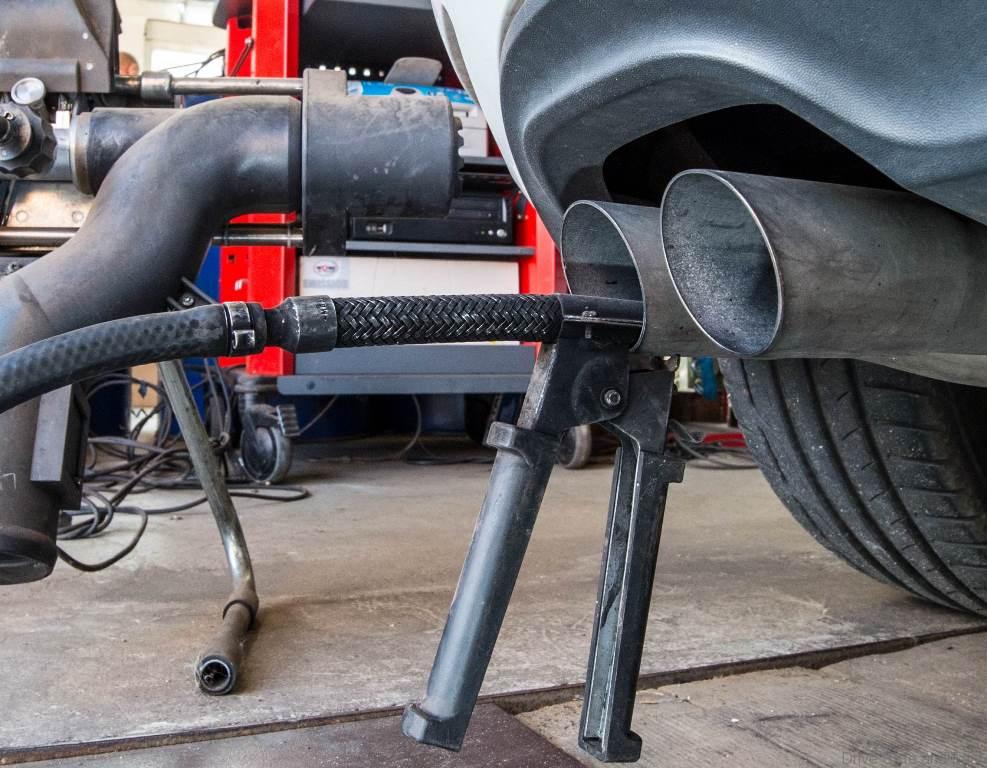Ford said its new 2.0-liter EcoBlue diesel will use selective catalytic reduction (SCR) technology to reduce NOx emissions.
VW Group said last October that it will switch to SCR technology in its diesels in Europe and the U.S. “as soon as possible.” VW has admitted to using “defeat” devices in up to 11 million diesel engines equipped with NOx traps (LNT) technology. SCR is regarded as more effective at reducing toxic NOx emissions than LNT, but it is also more costly and difficult to package inside a car. SCR uses a urea tank to reduce NOx emissions but the tanks needs periodic refilling so most automakers previously favored maintenance-free LNT systems.
Ford currently uses lean NOx traps (LNT) to reduce toxic output from its diesels. It said the new EcoBlue 2.0-liter engine will replace its current 2.0-liter TDCI diesel unit in its car range but did not specify in which models. The automaker also plans to introduce a 1.5-liter EcoBlue diesel cars starting next year that can be configured to use both LNT and SCR.
The 2.0-liter EcoBlue also reduces CO2 emissions by up to 13 percent thanks to reduced friction losses, Ford said. It’s also quieter and in passenger car applications can deliver more than 200hp.
Ford will likely continue to use LNT in its smaller diesels even as EU regulators continue to tighten emissions rules in the wake of the VW scandal.
Ford of Europe’s head of product development, Joe Bakaj said the EU’s move to stricter testing of vehicle emissions does not necessarily mean that all diesel cars will need SCR technology. “It will still depend on vehicle weight and load,” he told Automotive News Europe on the sidelines of the Geneva auto show in March.
The EU plans to introduce real-world testing of vehicle emissions starting in September 2017. Current tests are done only in laboratories.
VW’s emissions scandal involved the manipulation of engine management software so that its diesels had their emissions control systems switched on during lab tests but turned off on the road to avoid reducing performance and fuel economy.







